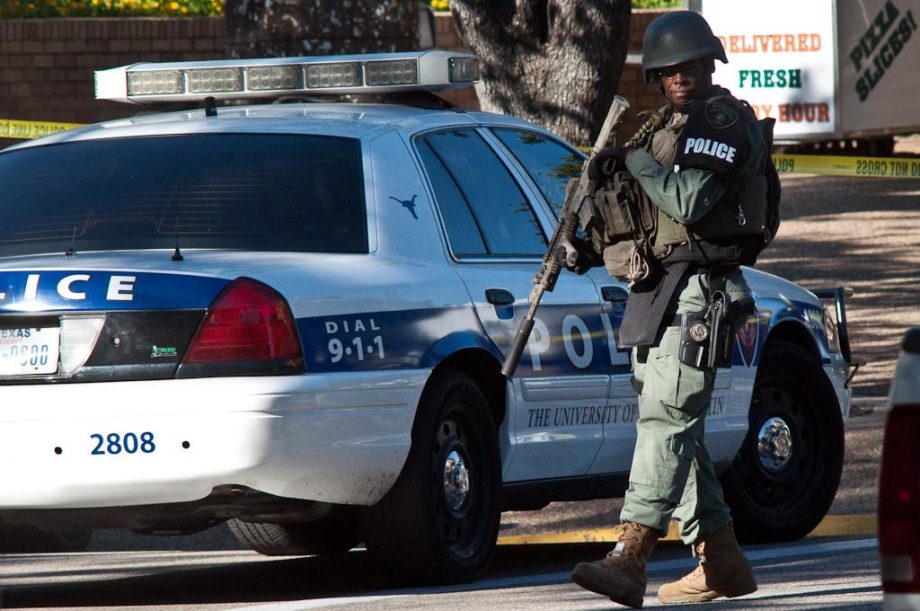The UT tower shooting was the first in a decades-long history of what has become a near-ritual of school shootings. But the events of the summer of 1966 left another, more compassionate legacy as well.
The University at Texas at Austin motto is meant to inspire: “What starts here changes the world.”
The unimaginable started here on a clear summer day in August 1966. Radio reports recorded the echoes of gunfire from a sniper shooting down at people on the UT-Austin campus from the main building tower observation deck.
Up until then, a mass public shooting at a school campus was unheard of. But that was just the beginning. From that point on, school shootings have become a common tragedy. What started at UT-Austin forever changed the world we knew.
So many react to school shootings with an “Oh no, not again.” So many shootings have torn apart communities across the country: Columbine, Virginia Tech, Sandy Hook. Mass shootings are more common now than they were before 1966, but the Tower shooting did not only foreshadow more shootings, it also gave birth to an array of security measures that didn’t exist back then: modern, well-equipped campus police departments.
“We’re a full-service law enforcement agency,” says Don Verett, assistant chief of UT-Austin police. “Anything you’d expect of a major metropolitan or sheriff’s department, the University of Texas police department carries.”
This means everything from weapons to tactics. For example, Verett has a navy blue bulletproof vest standing at the ready. “I have some heavier body armor that has the ceramic plates in it that will stop a rifle,” he says. “That just stops handguns.”
The weapons and armor this department and other college police departments have are a direct response to the 1966 attack. In fact, UTPD was created shortly after, in 1968.
Margaret Berry was dean of women at UT-Austin the year of the shooting. By that point she had been with the university for over 30 years, in one capacity or another, and was well-regarded. So when people started talking about the possibility of providing counseling for those affected by the shooting, her name came up.
“I was asked to be the first coordinator of the 24-hour telephone counseling center,” Berry says.
It was a radical idea. Remember this was the era of happy-go-lucky, like shows Andy Griffith, Gilligan’s Island and Bewitched. Vietnam veterans coming home had never heard of PTSD. People just didn’t talk about mental health.
Neither did they talk about counseling as a possible conduit to healing. That’s why UT-Austin’s 24-hour counseling service – the first in the nation – became such a game-changer. But, Berry says, it didn’t come about without trepidation.
“They didn’t want to put the office over in the counseling center,” she says. “They didn’t want students to know where it was. So they put it in the Dean of Students’ office, in a cloak room – no windows or anything in it, so students wouldn’t know where it was.”’
Few signs on campus advertised the counseling line. “We know some good things occurred with that,” Berry says. “Sometimes students would just call and say, ‘I just wanted to know if you were there.’”
Today, more and more trauma survivors are met with compassion, out in the open. Their pain is acknowledged and not kept in a cloakroom. That too started here, and it too has changed the world.


